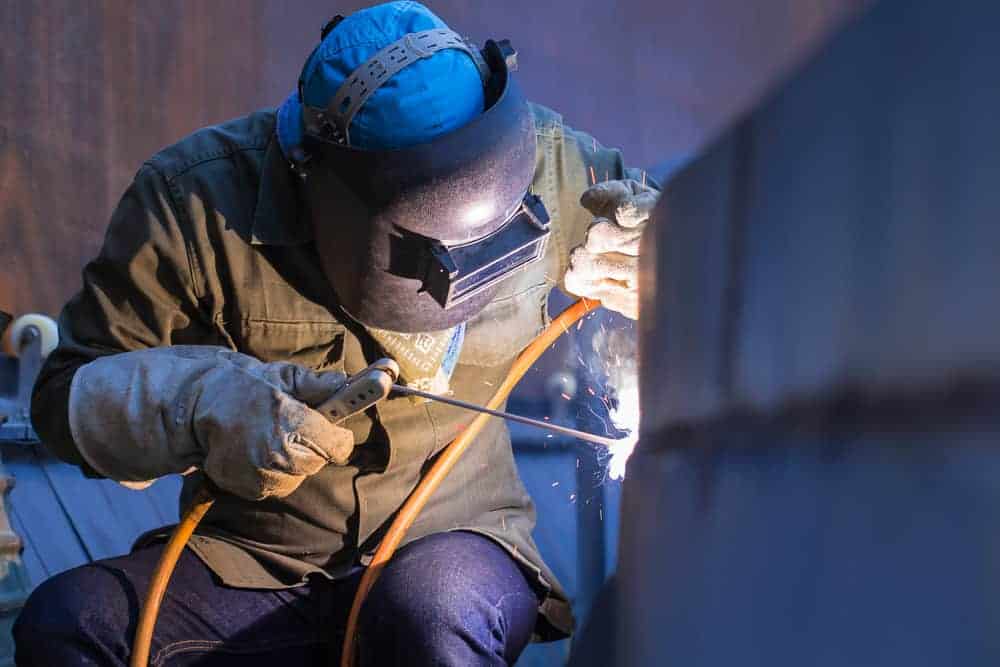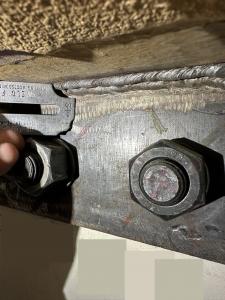Why Select Expert Welding Inspection Gilbert Arizona for Your Projects?
Why Select Expert Welding Inspection Gilbert Arizona for Your Projects?
Blog Article
Checking Out the Value of Welding Examination in Industrial Applications: Guarding Against Failures and Enhancing Longevity
Welding inspection serves as a vital line of protection in commercial applications, ensuring the structural integrity and reliability of bonded elements. By methodically determining defects such as porosity and incomplete fusion, evaluations not just stop failings but also prolong the lifespan of important properties.
Role of Welding Examination
Welding evaluation functions as a crucial guard in industrial applications, guaranteeing that bonded structures meet defined standards of top quality and safety and security. This process entails an organized evaluation of welds to verify their stability, toughness, and conformity with established codes and requirements. The role of welding evaluation is complex, encompassing both visual assessments and non-destructive testing methods, which might consist of ultrasonic, radiographic, or magnetic fragment testing.
Reliable welding inspection determines potential concerns early, mitigating the risk of disastrous failings that can develop from poor welds. By ensuring that welds are executed according to create specifications, inspectors contribute to the general architectural dependability and longevity of elements in important applications, such as stress vessels, pipes, and architectural frameworks.

Usual Welding Issues

Among one of the most prevalent issues is porosity, defined by small gas pockets entraped within the weld steel. This happens as a result of impurities or incorrect securing gas, jeopardizing the weld's stamina. Another substantial flaw is incomplete fusion, where the weld metal stops working to bond correctly with the base product, potentially leading to structural weaknesses.

Splits can also establish during or after the welding procedure, often associated to thermal anxieties or inappropriate cooling prices. Furthermore, damaging, where the base steel is worn down along the weld bead, can weaken the joint and is commonly brought on by extreme heat input or incorrect strategy.
Additionally, absence of penetration happens when the weld metal does not reach the root of the joint, resulting in poor strength. Comprehending these common flaws is critical for examiners and welders alike to make sure that bonded structures fulfill safety and security and efficiency criteria, ultimately preventing potential failings in industrial applications.
Advantages of Normal Inspections
Normal evaluations serve as an important safeguard in guaranteeing the reliability and longevity of welded frameworks. These analyses determine prospective flaws and weak points that might endanger the integrity of welds, permitting timely removal prior to problems escalate. By implementing an organized inspection routine, organizations can considerably minimize the threat of tragic failings that may cause expensive downtime, devices substitute, and even crashes.
Furthermore, regular assessments add to enhanced quality assurance throughout the welding process. By adhering to a constant evaluation timetable, business can make certain that their welding techniques fulfill established high quality criteria and best techniques. This not only promotes a culture of responsibility official source however likewise encourages continuous renovation among welding workers.
On top of that, regular evaluations promote far better upkeep preparation. By identifying damage early, companies can tactically arrange substitutes and repair work, decreasing interruption to procedures. This positive technique eventually brings about prolonged possession lifespan and improved general efficiency.
Last but not least, a commitment to routine inspections can enhance a firm's online reputation in the industry. Clients and stakeholders progressively worth companies that focus on security and top quality, thereby boosting count on and possibly resulting in enhanced organization possibilities.
Industry Standards and Laws
Following sector criteria and laws is a fundamental aspect of welding assessment that complements the benefits of regular evaluations. These standards, developed by organizations such as the American Welding Culture (AWS) and the American Culture of Mechanical Designers (ASME), provide a structure for best practices in welding processes, products, and evaluation techniques. Conformity with these policies makes sure that welds fulfill the needed top quality and safety standards, dramatically reducing the risk of structural failures.
Governing bodies like the Occupational Security and Health And Wellness Administration (OSHA) even more apply standards that safeguard employees and the setting during welding operations. By adhering to these developed requirements, sectors can boost the integrity of their components and frameworks, guaranteeing they execute as meant under various functional problems.
Moreover, adherence to market requirements promotes uniformity in quality assurance, helping with smoother interaction among stakeholders and regulatory companies. This positioning not only decreases obligation dangers yet also enhances the reputation of companies in open index markets. Welding Inspection Gilbert Arizona. Eventually, compliance with welding requirements and laws is not merely a lawful responsibility; it is an essential investment in security, efficiency, and lasting functional success
Future Trends in Welding Examination
As sectors remain to develop, the future of welding evaluation is positioned to integrate innovative technologies that boost precision and effectiveness. Among the most significant trends is the adoption of automation and robotics in inspection procedures. Automated systems can conduct examinations rapidly, reducing human error and boosting throughput in making atmospheres.
Moreover, the integration of expert system (AI) and artificial intelligence formulas will certainly enable anticipating analytics, allowing for real-time assessments and proactive upkeep. By evaluating information from previous evaluations, these technologies can determine patterns that could suggest potential failures, consequently prolonging the lifespan of bonded parts.
Additionally, non-destructive testing (NDT) techniques are expected to become a lot more advanced, utilizing tools such as drones and independent cars equipped with advanced sensors. Welding Inspection Gilbert Arizona. These advancements will enhance the capacity to evaluate hazardous or hard-to-reach locations without jeopardizing security
Furthermore, the pattern towards digitalization will result in boosted information administration systems that assist in far better tracking, reporting, and compliance with industry criteria. In recap, the future of welding examination is characterized by technical developments that promise to significantly boost integrity, security, and operational effectiveness in various industrial Related Site applications.
Verdict
In conclusion, welding examination serves a vital feature in ensuring the stability and resilience of bonded structures throughout different commercial applications. By recognizing issues such as porosity and incomplete blend, normal examinations play a significant function in danger reduction and quality assurance. Adherence to market requirements and regulations further improves functional safety and integrity. As improvements in technology remain to progress, the future of welding examination promises boosted precision and performance, inevitably contributing to the longevity of vital infrastructures.
Welding examination offers as an important line of protection in commercial applications, guaranteeing the architectural stability and integrity of bonded components.Welding evaluation offers as an important secure in commercial applications, making sure that welded frameworks meet specified requirements of high quality and safety and security. Inevitably, the function of welding inspection is crucial in promoting security, boosting performance, and safeguarding investments in industrial framework.
These requirements, established by organizations such as the American Welding Society (AWS) and the American Culture of Mechanical Engineers (ASME), offer a structure for best practices in welding processes, materials, and examination methods.In conclusion, welding examination offers a crucial feature in making certain the integrity and resilience of bonded structures throughout various industrial applications.
Report this page